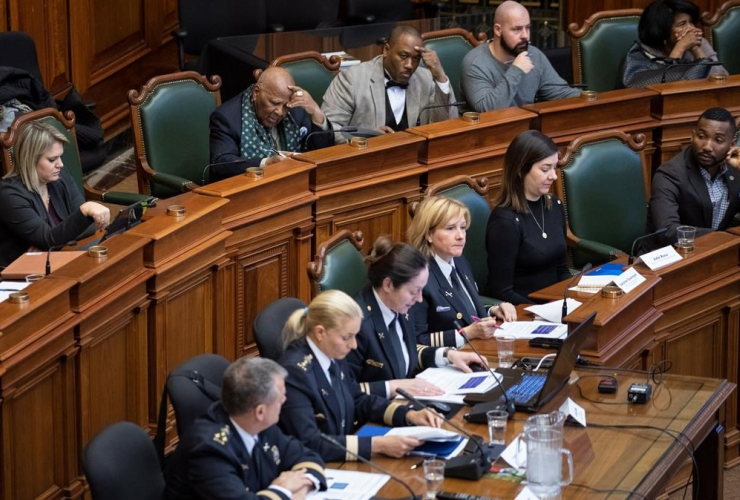Quebec's human rights commission is calling on the provincial government to come up with a plan to fight racism and discrimination in the wake of a new report on abuse against minorities.
Myrlande Pierre, the commission's vice-president, said human rights groups and other civil society organizations have been asking for an anti-racism policy for the past two decades but the government has not heeded their requests.
Now, armed with a 328-page report detailing cases of vicious abuse against dozens of people — mostly Muslims and people of colour — commissioners said the province must finally act.
"What hit us hardest was the sentiment of exclusion," said Houda Asal, a researcher who worked on the report, which documents interviews with 86 people who say they have been victims of racism.
"People who were born in Quebec, or who have been here 30 years — who have kids who were born here," Asal said. "And they say they feel like strangers, that they will always be a stranger."
Out of the 86 people interviewed, 72 per cent identified as either black or Arab, while 51 said they were Muslim.
They spoke of being harassed in the street, spat on, physically assaulted, or of having their property vandalized. On average, each person interviewed was the victim of three hate crimes between 2007 and 2017.
About 35 per cent of them said they changed their habits following their experiences and 78 per cent of the hateful acts they suffered were not reported to authorities.
"In a bar ... I was at a party with colleagues and with other friends who were dancing," reads testimony from one Arab man about an event in Quebec City. "A man pushed and hit me and said: 'Go back home. You come here, you steal our jobs and our women.'"
A woman from Montreal who wears a hijab testified to the commission that she was told: "Halloween was two weeks ago! Go to Afghanistan!" Another woman who wears a hijab said someone purposefully hit her with their car.
The two-year study was commissioned by the previous Liberal government as part of its "anti-radicalization" initiatives.
Former premier Philippe Couillard also mandated the human rights commission to hold public consultations on systemic racism in Quebec.
But following criticism from his political opponents and from pundits, Couillard backtracked, and Premier Francois Legault with the Coalition Avenir Quebec has repeatedly stated he doesn't think systemic racism exists in the province.
When asked whether that was true, Pierre was unequivocal.
"Systemic or structural racism exists. Quebec is not exempt from this phenomenon," she said. "And why do we talk about systemic racism or discrimination? It's because we want systemic responses to this phenomenon to ensure that government actions are perpetuated through time.... We need a long-term vision."
Asal said many of the respondents spoke about legislation, government policies and political debates they thought were connected to the abuse they suffered.
In particular, respondents mentioned the debate in Quebec over reasonable accommodation of religious minorities and around the Parti Quebecois government's so-called charter of values in 2013.
"The charter came up a lot," said Asal, referring to the PQ's legislation that died when the party was defeated in the 2014 election. The current government passed its own version of the PQ's charter last June. Bill 21 bans some public sector workers such as teachers from wearing religious symbols at work.
Interviewees "said there was a before and after (the charter)," Asal continued. "That it liberated a type of speech. They mentioned certain politicians at the time ... and certain media that stigmatized certain people —notably immigrants, racialized people and women who wear the headscarf."
This report by The Canadian Press was first published Sept. 24, 2019.





Comments